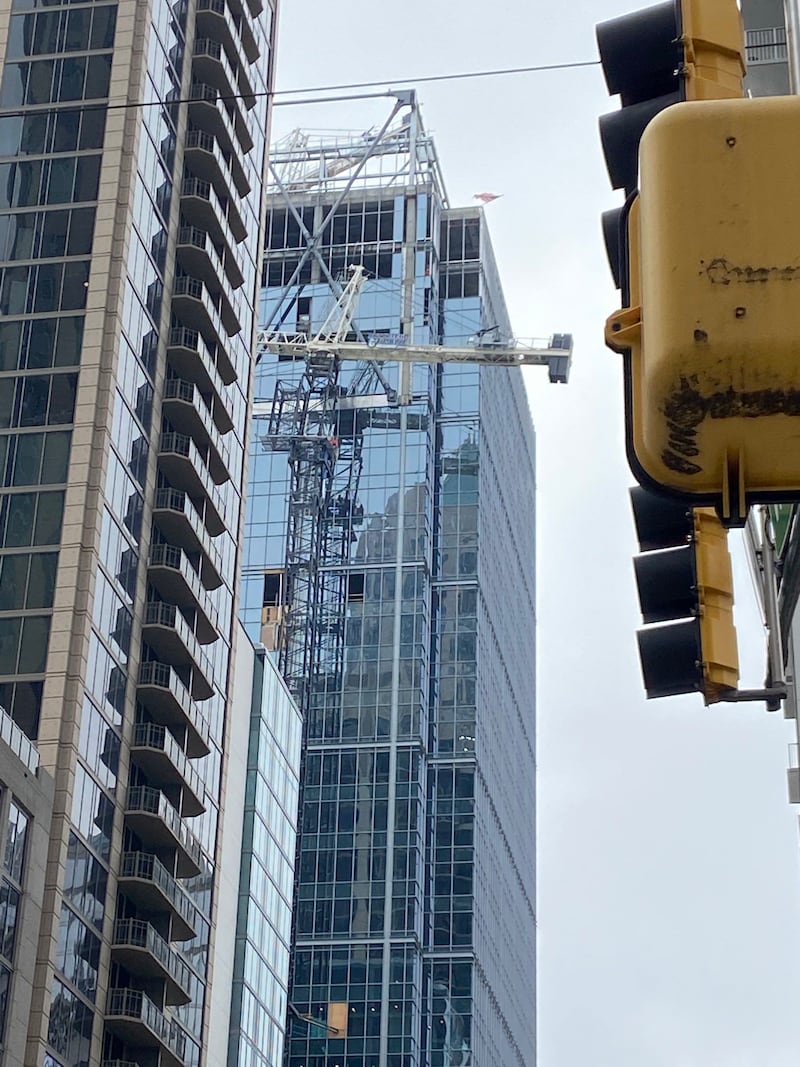ATLANTA — The Environmental Protection Agency announced it wants long-term funding to clean up legacy lead waste in the soil of Atlanta’s Vine City and English Avenue neighborhoods.
The EPA proposed adding the Westside Superfund site to the Superfund National Priorities List to secure long-term resources for the cleanup. Currently, the superfund site contains more than 2,000 affected properties. EPA estimates the cleanup of the century-old industrial waste could last until 2028, at a price tag of $50 million.
The work to remediate properties started in 2018, after an Emory researcher found high lead levels in the soil of Rosario Hernandez’s English Avenue home.
“I said well can you tell me the properties and he was like, ‘Rosario yours is one of them’, I’m like what? I’ve been gardening there for 8 years now,” Hernandez said.
Environmentalists showed Hernandez, and other neighbors lava-like rocks that littered their yards. They explained the rocks were called slag, a byproduct of industrial smelting waste from the foundries that date back to the turn of the 19th century. Sanborn Insurance maps from 1892 reveal at least 10 foundries were in Atlanta at the time.
Lead was used in industrial work during that period before people knew how dangerous it can be, especially for children. According to the CDC, lead exposure in children and pregnant women can lead to brain damage, learning, behavioral, hearing and speech problems.
“The problem of lead in the soil is also a very difficult problem, because it’s hard to understand how much is going to get to the child,” explained Emory University Hospital professor Dr. Robert Geller. Geller, a pediatrician and toxicologist, said children from the superfund area are not doomed to experience health issues, but no level of lead exposure is safe. He recommended every child be tested for lead poisoning so doctors know if there’s a health risk. “Every child should have a blood lead done and every child should have it repeated while that exposure continues.”
For years, Hernandez’s four grandchildren lived in her home, played in her, and ate food from her garden. She said neighborhood kids would play with the strange-looking slag rocks before they learned they were dangerous.
“Man, it’s horrible. You can’t even imagine,” Hernandez said. “What if I contributed to my grandchildren having not only health problems, but developmental delays in their learning?”
EPA remedial project manager Leigh Lattimore said efforts to get the soil tested have been slow. Fears of spreading COVID-19 have disrupted going door to door to get permission to test properties. There are also many rental properties in the community, with out-of-town owners who may be difficult to locate. The EPA lead testing is completely free to property owners. Lattimore said if high lead levels are found on your property, they’ll replace the soil and trees, and sod the yard, for free.
MORE STORIES BY 2 INVESTIGATES:
- Hurricane season creates hidden danger for people visiting Georgia’s coast — rip currents
- Hundreds of thousands of expired COVID-19 vaccine doses thrown out in Georgia this year
- Some Goals plastic surgery patients considering legal action after Channel 2 investigations
“We’re still working hard to get the word out,” Lattimore said. “We have access to 840 properties out of our 2,097 properties in our study area, so that’s less than 50 percent.”
Rosario Hernandez is taking matters into her own hands to teach neighbors about the project. They’re knocking on doors and passing out flyers, trying to encourage landowners to get their soil tested.
“All I would do is think about it and want to cry,” Hernandez said. “I can’t let this defeat me. I need to find out what we need to do to fix this.”
©2021 Cox Media Group





